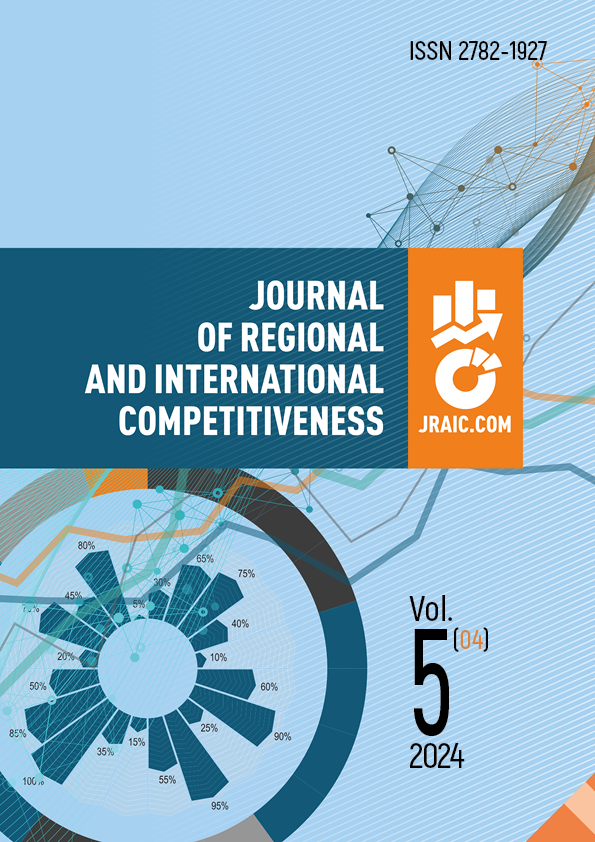employee from 01.01.2022 until now
Barcelona, Spain
The article discusses methods for assessing digital maturity in the banking sector. This digital transformation implying the need for prioritisation and timely assessment of the effectiveness of implemented initiatives. The research analyses existing maturity models such as MIT CISR, Gartner, Digital Quotient from McKinsey and Digital Acceleration Index from BCG, KPMG. The author dwells on the models main advantages and limitations in terms of application in CIS banks with significant restrictions in access to the talent market, a large amount of legacy IT systems, and significant inertia the scale of the organisation. The research presents the author's methodology adapted to the needs of banking institutions in the CIS region. This methodology covers a comprehensive assessment of key areas, including the maturity of IT and DevOps processes, the effectiveness of Agile methodologies, HR indicators such as staff turnover and the speed of adaptation of new employees, business metrics, including indicators of commercial efficiency, customer experience, and internal operational efficiency. The proposed approach includes both quantitative and qualitative assessment methods. Quantitative methods are based on data from internal banking systems such as project management systems, HR systems, automated dashboards from various IT systems of the bank, etc. Qualitative methods include expert assessments, anonymous employee surveys, and industrial benchmarking of competitors. The article describes the stages of implementing the methodology, starting from planning and data collection to calibrating the results and using them to form a transformational roadmap. The application of the methodology in a number of CIS banks over the past 5 years has demonstrated its effectiveness in increasing transparency in managing digital initiatives and accelerating the achievement of strategic goals. The results of the study emphasise the importance of a systematic approach to managing digital maturity and adapting global models to the specifics of the local market.
agile maturity, banking sector, digital transformation, DevOps processes, HR indicators, business metrics, digital maturity, efficiency assessment, process optimisation, customer metrics.
1. Haryanti, T., Rahmavauati, N. A., & Subriadi, A. P. (2023). An extended model of digital maturity. Big Data and Cognitive Computing, 7(1), 17. Retrieved from https://doi.org/10.3390/bdcc7010017
2. D'agnoluzzo, V., Baxter, M., Breeden, S., Franca, A., Gauteron, P., Simone, S., & van der Vleugel, M. (2023). How banks can use technology to gain a competitive advantage. Bain & Company. Retrieved from https://www.bain.com
3. Zhou, Y., Ock, Y.-S., Alnafrah, I., & Dagestani, A. A. (2023). What aspects explain the relationship between digital Transformation and financial performance of firms? Journal of Risk and Financial Management, 16(11), 479. Retrieved from https://doi.org/10.3390/jrfm16110479
4. Savchina, O. V., & Medina, G. V. (2023). Digital transformation of the banking sector in modern conditions. Vestnik Moskovskogo gorodskogo pedagogicheskogo universiteta. Seriya: Ekonomika, (2), 55-67. Retrieved from https://repository.rudn.ru/en/records/article/record/104072 (in Russian).
5. Levy, B. (2023). Four ways to prepare for the future in the digital age. Strategy and Leadership, 51(1), 18-25. Retrieved from https://doi.org/10.1108/SL-10-2022-0100
6. Demir, E., & Kokoglu, B. (2019). Business Maturity Assessment using the 7S McKinsey Model. Journal of Business and Management Studies, 6(3), 158-166. Retrieved from https://doi.org/10.17261/Pressacademia.2019.1117
7. orontsov, D. (2021). Modern approaches to Agile transformation of Russian financial and technological companies. SHS Web of Conferences, 116, 00066. Retrieved from https://doi.org/10.1051/shsconf/202111600066
8. Al-Zahrani, S., & Fakih, B. (2020). How DevOps practices support digital transformation. International Journal of Advanced Trends in Computer Science and Engineering. 9(3), 2780-2788. Retrieved from https://doi.org/10.30534/ijatcse/2020/46932020
9. Luz, G. P. V., & Bonifacio, R. (2019). Application of DevOps in the real world: theory, model and example. Journal of System Software, 157(4). Retrieved from https://doi.org/10.1016/j.jss.2019.07.083
10. Gilch, P. M., & Siweke, J. (2020). Recruiting digital talents: the strategic role of hiring in the digital transformation of organizations. Managerial Review. 35(1). Retrieved from https://doi.org/10.1177/2397002220952734
11. Yadav, G. N. S., & Seranadevi, R. (2024). Digital Transformation: Creating customer engagement strategies for success. In Digital technologies, ethics and decentralization in the digital age. IGI: Global. Retrieved from https://doi.org/10.4018/979-8-3693-1762-4.ch005


















